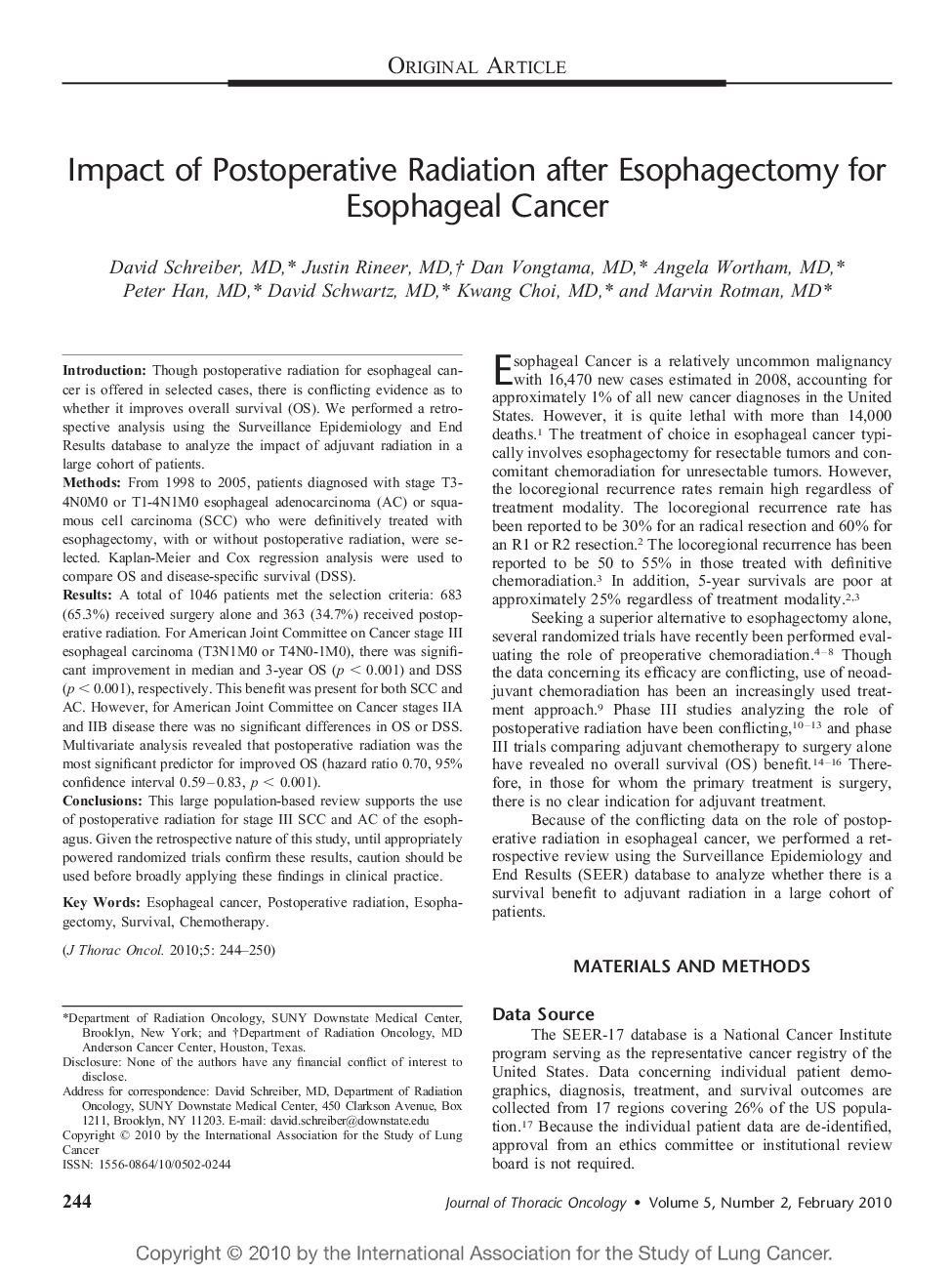| Article ID | Journal | Published Year | Pages | File Type |
|---|---|---|---|---|
| 3991056 | Journal of Thoracic Oncology | 2010 | 7 Pages |
IntroductionThough postoperative radiation for esophageal cancer is offered in selected cases, there is conflicting evidence as to whether it improves overall survival (OS). We performed a retrospective analysis using the Surveillance Epidemiology and End Results database to analyze the impact of adjuvant radiation in a large cohort of patients.MethodsFrom 1998 to 2005, patients diagnosed with stage T3-4N0M0 or T1-4N1M0 esophageal adenocarcinoma (AC) or squamous cell carcinoma (SCC) who were definitively treated with esophagectomy, with or without postoperative radiation, were selected. Kaplan-Meier and Cox regression analysis were used to compare OS and disease-specific survival (DSS).ResultsA total of 1046 patients met the selection criteria: 683 (65.3%) received surgery alone and 363 (34.7%) received postoperative radiation. For American Joint Committee on Cancer stage III esophageal carcinoma (T3N1M0 or T4N0-1M0), there was significant improvement in median and 3-year OS (p < 0.001) and DSS (p < 0.001), respectively. This benefit was present for both SCC and AC. However, for American Joint Committee on Cancer stages IIA and IIB disease there was no significant differences in OS or DSS. Multivariate analysis revealed that postoperative radiation was the most significant predictor for improved OS (hazard ratio 0.70, 95% confidence interval 0.59–0.83, p < 0.001).ConclusionsThis large population-based review supports the use of postoperative radiation for stage III SCC and AC of the esophagus. Given the retrospective nature of this study, until appropriately powered randomized trials confirm these results, caution should be used before broadly applying these findings in clinical practice.
